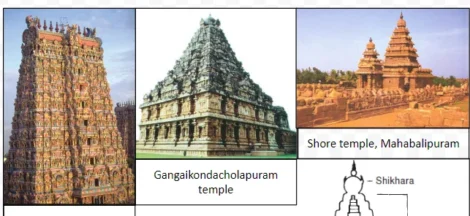By K. Raveendran
Nothing should take precedence over relief and rescue operations in the unprecedented devastation brought by overflowing dams and torrential rains in Kerala, claiming over 300 lives and displacing over 2 lakh people from their homes. Over 1,500 relief camps have been opened. It was as though the moment of truth has arrived for Malayalis, with people used to driving down in luxury cars being put in large cooking vessels and pushed to safety; women and children hauled up on the upper floors of their premium homes sending desperate SOS messages on social media to save their lives and inhabitants of posh localities trying to grab a piece of loaf hurled at them by rescue workers.
It is no time for a blame game. And yet it may be not be inappropriate to do a reality check. The agonising experience has put the fear of God back into the Malayali mind, which he had long exchanged for material and matter. And God, who had lost his own country to the usurpers, seems to have snatched it back with a vengeance, if at all He ever gets into such ferocious moods. Just as the nature’s fury levelled hills and settlements, it also punctured mountain-sized egos, which had become the trademark of every Malayali. He is being made to learn the lesson of his life that no amount of riches or luxury accessories can save him from nature’s fury, which makes no distinction between the glitzy glass tower and the ramshackle shed down below.
To fathom the depth of Malayali’s sense of devastation, a bit of historical perspective will be in order. Thanks to the visionary zeal of great men of intellectual calibre, early exposure to communism and liberal thought inculcated a spirit of questioning in the Malayali psyche and he began to challenge every established order of the day, social, political or economic. This helped the Kerala society to pull down social barriers and fetters to individual liberty so much so that the state had one of the most egalitarian societies when the rest of India was still passing through the dark ages of obscurantism. Much before the rest of India’s dalits could even enter places of worship run by upper caste Hindus, Kerala’s so-called ‘untouchables’ became priests in prestigious temples. Any Hindu could become a professional poojari by becoming certified through a public examination. Similarly, the Malayalee made tremendous achievements through the organizational strength of unity.
But unfortunately, over time, whatever made all these achievements possible began to boomerang on him. The Malayali carried the sprit of questioning too far and did not seem to know where to stop. He challenged everything, including the need to maintain order to achieve progress. And it led to a kind of anarchy so that anybody with the backing of an organisation could bargain his way through to achieve any demand, and it did not matter how it impacted others. Similarly, the principle of equality was overstretched to the extent that no one considered himself or herself to be less equal than anybody else. So everyone was a law unto oneself and disorder became the only order. And the Malayali embraced a new materialistic culture in which nothing other than self-aggrandizement mattered.
Kerala ceased to be the much-touted ‘God’s Own Country’, an empty slogan employed by tour operators to attract tourists to the state. Rather it became the abode of devils as the materially-empowered Malayali began to buy everything with his money. And he came up with ingenious ways to make more and more of it. Much before Modi had embarked on his demonetization plan, Keralites had already devalued God and reduced Him into a commodity that the highest bidder could take home with no strings attached.
Malayali’s greed found no bounds as he made everything subservient to his interests. No law or authority was strong enough to face up to his avarice. Forests were cut down to build concrete jungles so that he could sell them and make more money; rock mountains were flattened to produce stones to build his high-rises and rivers were killed to create waterfront properties, which sold at a premium. All this was done in the name of progress and development, unmindful of the fact that it was destroying the fragile ecosystem, which spread across a major part of the state. Those who were supposed to fight the violations, including the ruling establishment, joined the act and became partners in the crime.
When a team headed by Madhav Gadgil, ecologist and founder of the Centre for Ecological Sciences at the Indian Institute of Science, Bengaluru, submitted a report recommending strong measures to protect the sensitive Western Ghat region by declaring an area extending to 140,000 kilometres as requiring special protection, including strong restrictions on mining and quarrying, use of land for non forest purposes and construction of high rises, he was hounded out as an environmental prankster and a mad man pushing someone’s agenda. The Kerala government outrightly rejected the recommendations, without adopting even the most innocuous among them.
It is rather poetic justice that most of the regions devastated by the current monsoon fury are the ones Gadgil and his team had classified as ecologically-sensitive zones. In fact, reacting to the unprecedented suffering the state is currently undergoing, Gadgil described it as a man-made calamity and blamed it on the irresponsible environmental policy of the government. With a government headed by a chief minister who is a reluctant learner himself, it is a bit too much to expect a change of heart on the part of the ruling establishment, as it has deeply-entrenched interests that align with those of the land and construction mafia. That is not at all a comforting thought for the hapless Malayali, facing an existential crisis. (IPA Service)
The post Malayali Greed Has Come Home To Roost appeared first on Newspack by India Press Agency.



